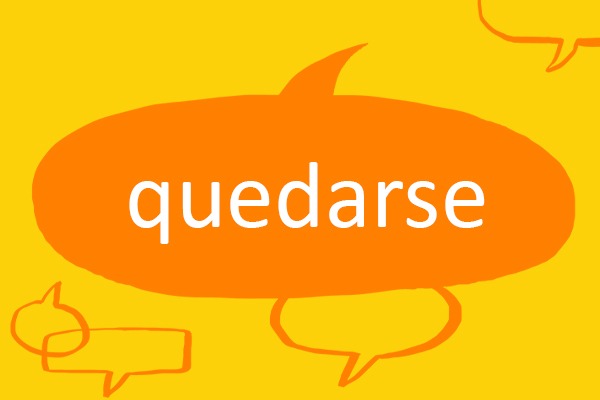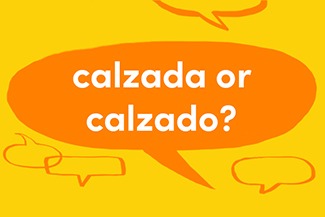This week’s Spanish word of the week is quedarse.
Quedarse is a reflexive verb that means to stay, and also to keep; to take. You can listen to the pronunciation of quedarse in the audio clip below:
Quedarse is a very commonly used verb which it’s useful to get to know. Its main meaning is to stay:
Ve tú, yo me quedo aquí. You go, I’ll stay here.
Anoche me quedé en casa. Last night I stayed at home.
Apart from meaning ‘staying put’ in one place, it’s also the word you need to talk about where you stay while you’re on holiday, or travelling:
Se quedaron en casa de unos amigos. They stayed with some friends.
Me quedo en Roma unos tres días. I’m staying in Rome for about three days.
Quedarse also means to keep or to take in several contexts:
Ya no lo necesito, quédatelo tú. I don’t need it any more, you keep it.
You use quedarse with con before the thing that you keep or take:
Cuando nos separamos, me quedé con la casa. When we split up I kept the house.
Puestos a escoger, me quedo con estos dos. Faced with the choice, I’ll keep these two.
And if you want to tell someone to keep the change, the phrase is ¡Quédese con la vuelta!
Come back next week for another insight into Spanish vocabulary!



